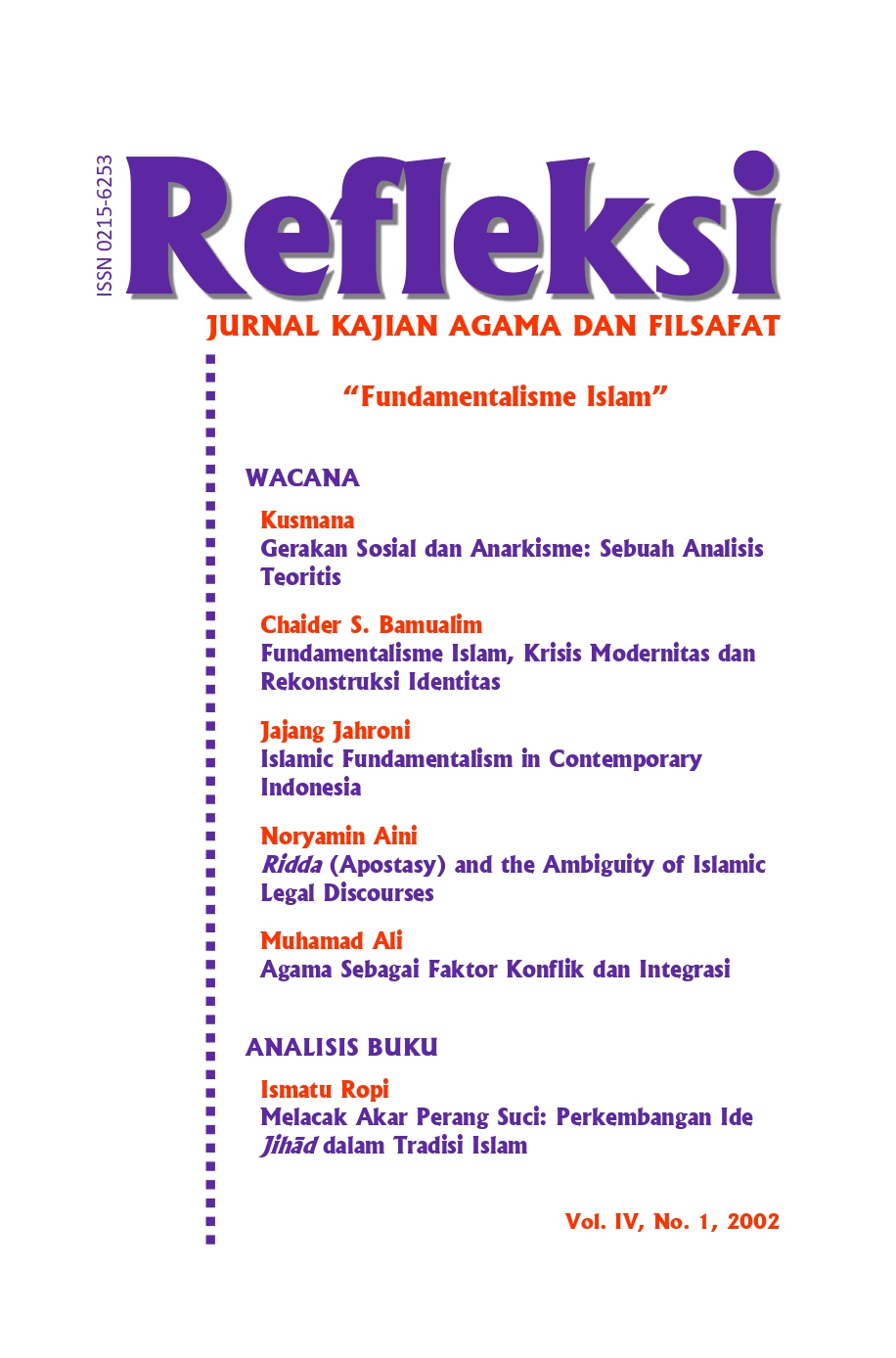Ridda (Apostasy) and the Ambiguity of Islamic Legal Discourses
DOI:
https://doi.org/10.15408/ref.v4i1.44770Keywords:
Ridda, Apostasy, Islamic Law, Fundamentalism, Human Rights, Abrogation (Naskh), Islamic Jurisprudence, Prophetic Traditions, Legal Methodology, Shāfi‘ī, Islamic Legal Discourse.Abstract
The emergence of Islamic liberalism has often been perceived as a threat by those who consider themselves the primary guardians of Islam’s purity. This perception has led to a rise in religious fundamentalism, characterized by intolerance toward diverse interpretations of Islamic teachings. One of the most tragic cases related to this issue is the execution of Sudanese leader Mahmoud M. Thaha on January 18, 1985, by Nimeiri’s regime. Thaha was sentenced to death for his unorthodox views on naskh (abrogation) and mansūkh, which challenged the established Islamic doctrine. The concept of ridda (apostasy) has become increasingly contentious, particularly in light of human rights discourse. Historically, ridda laws have been used by fundamentalist groups as a means to suppress dissent. Classical jurists developed these laws within specific socio-political contexts, yet their interpretations have persisted. This paper argues that the traditional Islamic law of ridda is not only at odds with Qur’anic principles of religious freedom but also suffers from significant epistemological and methodological ambiguities. The reliance on Prophetic traditions and legal precedents is problematic due to inherent contradictions and contextual misinterpretations. This study critically examines the methodological foundations of ridda law and its implications for contemporary Islamic legal discourse.References
Baker, Barbara G. “Arab press says Hussein has returned to Islam” [R. Hussein], Christianity Today. Vol. 41, Apr. 7 1997.
Gandjeih, Djalal. “The Satanic Fatwa: an Iranian Ayatollah Defends Salman Rushdie [Excerpt from For Rushdie]”. |Article. Book excerpt] Utre Reader. Sep./ Oct. 1994.
Howeidy, Amira. “The Persecution of Abu Zeid [ordered to annul his marriage after Egyptian court ruled him an apostate]”, World Press Review. Vol. 42, Oct 1995.
Lawton, Kim A. “Another Pastor Martyred in Iran [M. B. Yusefi]”, Christianity Today. Vol. 40, Nov. 11 1996.
Miller, Judith. “New tack for Egypt’s Islamic Militants: Imposing Divorce [case of N. Abu Zeid]”, New York Times. Dec. 28 1996.
al-Nāsābūrī, Muslim ibn al-Ḥajjāj. Ṣaḥīḥ Muslim bi I-Sharḥ al-Nawāwī, Vol. 6, pp. 159-157.
Weaver, Mary Anne. “Revolution by Stealth [N. Abu Zeid Ruled an Apostate by Egyptian Court]”, The New Yorker. Vol. 74 No.15, June 8 1998.








